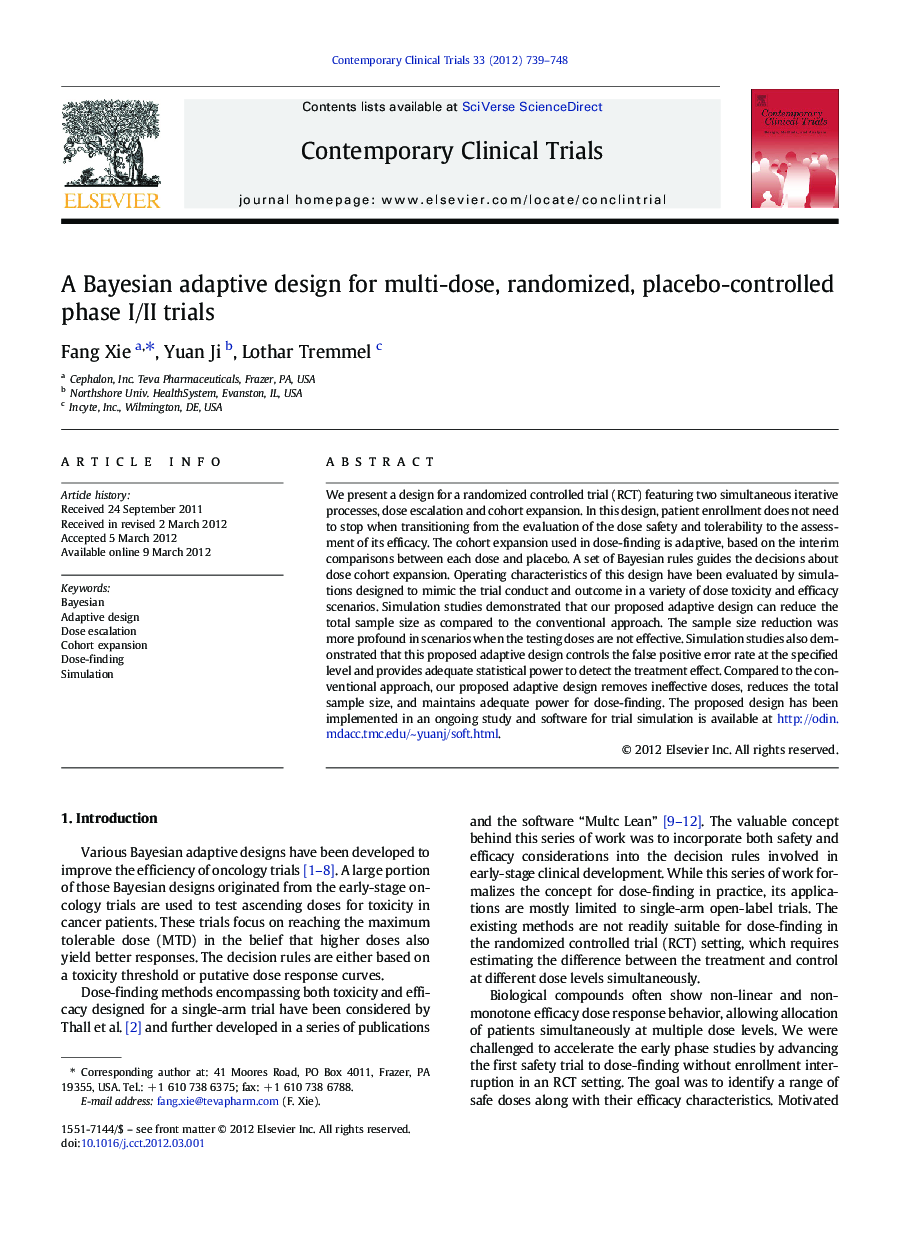| Article ID | Journal | Published Year | Pages | File Type |
|---|---|---|---|---|
| 3462909 | Contemporary Clinical Trials | 2012 | 10 Pages |
We present a design for a randomized controlled trial (RCT) featuring two simultaneous iterative processes, dose escalation and cohort expansion. In this design, patient enrollment does not need to stop when transitioning from the evaluation of the dose safety and tolerability to the assessment of its efficacy. The cohort expansion used in dose-finding is adaptive, based on the interim comparisons between each dose and placebo. A set of Bayesian rules guides the decisions about dose cohort expansion. Operating characteristics of this design have been evaluated by simulations designed to mimic the trial conduct and outcome in a variety of dose toxicity and efficacy scenarios. Simulation studies demonstrated that our proposed adaptive design can reduce the total sample size as compared to the conventional approach. The sample size reduction was more profound in scenarios when the testing doses are not effective. Simulation studies also demonstrated that this proposed adaptive design controls the false positive error rate at the specified level and provides adequate statistical power to detect the treatment effect. Compared to the conventional approach, our proposed adaptive design removes ineffective doses, reduces the total sample size, and maintains adequate power for dose-finding. The proposed design has been implemented in an ongoing study and software for trial simulation is available at http://odin.mdacc.tmc.edu/~yuanj/soft.html.
